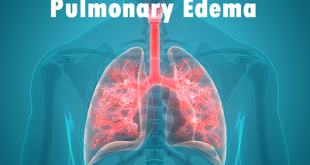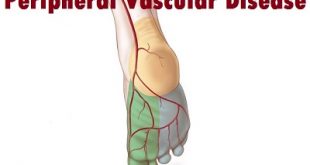Definition Pulmonary edema occurs when the air sacs (alveoli) in your lungs fill with fluid. The fluid buildup makes it hard for the lungs to do their job, including getting oxygen from the air you breathe. This can make it hard to breathe. The most common cause of pulmonary edema …
Read More »Paronychia – Types, Causes, Treatment and Prevention
Definition Paronychia is an infection of the skin around a fingernail or toenail. The infected area can become swollen, red, and painful, and a pus-filled blister (abscess) may form. Most of the time, paronychia is not serious and can be treated at home. In rare cases, the infection can spread …
Read More »Pleural Effusion – Symptoms, Risk factors and Management
Definition Pleural effusion is a build-up of excess fluid between the lining of the lungs and chest cavity. This lining is called the pleura. The area between the pleura is the pleural space. The body normally produces a small amount of fluid between the pleura to facilitate breathing. A pleural …
Read More »Persistent Genital Arousal Disorder (PGAD) – Causes, and Treatment
Definition Persistent genital arousal disorder (also known as persistent sexual arousal syndrome and restless genital syndrome) is defined as feelings of spontaneous, persistent and intense genital arousal with or without orgasm, with or without genital engorgement, in the absence of sexual desire. This rare and unique sexual arousal problem is …
Read More »Peripheral Vascular Disease (PVD)- Causes, Treatment and Prevention
Definition Peripheral vascular disease (PVD) is a problem with poor blood flow. It affects blood vessels outside of the heart and brain and gets worse over time. Parts of the body, like the brain, heart, arms, or legs, may not get enough blood. The legs and feet are most commonly …
Read More »Priapism – Treatment, Overview, and Risk Factors.
Overview Priapism is a persistent, usually painful, erection that lasts for more than four hours and occurs without sexual stimulation. The condition develops when blood in the penis becomes trapped and is unable to drain. If the condition is not treated immediately, it can lead to scarring and permanent erectile …
Read More »Precocious Puberty – Types, Symptoms, Causes, and Treatment
Definition Precocious puberty is the term for puberty that begins much earlier than usual. Puberty is the process in which a child has a growth spurt and develops the sexual physical features of an adult. In the brain, the hypothalamus releases chemicals (hormones) that cause the pituitary gland to release …
Read More »Periodontitis – Overview, Complications and Risk factors.
What is periodontitis? Periodontitis is inflammation of the gums and supporting structures of the teeth. It is one of the most common human diseases. It is caused by certain bacteria (known as periodontal bacteria) and by the local inflammation triggered by those bacteria. Although these periodontal bacteria are naturally present …
Read More » Diseases Treatments Dictionary This is complete solution to read all diseases treatments Which covers Prevention, Causes, Symptoms, Medical Terms, Drugs, Prescription, Natural Remedies with cures and Treatments. Most of the common diseases were listed in names, split with categories.
Diseases Treatments Dictionary This is complete solution to read all diseases treatments Which covers Prevention, Causes, Symptoms, Medical Terms, Drugs, Prescription, Natural Remedies with cures and Treatments. Most of the common diseases were listed in names, split with categories.








